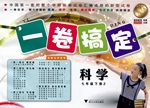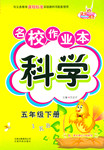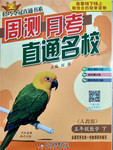题目内容
When I settled in Chicago,my new city seemed so big and unfriendly. Then I had a ___1___ problem and had to go to hospital for a ___2___ examination.
It seemed a small ___3___ compared to the one I was about to face, but things started to go ___4___ right from the beginning. Not having a car for ___5___ the city, I was depending on a couple of buses to get me from A to B. ___6___ I’d left myself plenty of time, soon it was ___7___ that I was going to be late, as I had mistakenly boarded a bus that was taking me in the ___8___ direction.
I ___9___ the bus and stood on the pavement not knowing what to do. I look into the eyes of a ___10___ who was trying to get past me. __11____ instead of moving on, she stopped to ask if I was ___12___. After I explained my ___13___ to her, she pointed to a bus stop across the street, where a bus would take me back into the city to my ___14___. Sitting there waiting, I felt ___15___ that someone had been willing to help. ___16___, hearing a horn (喇叭) nearby, I looked up to see a car with my new friend ___17___ at me to get in. She had returned to offer me a ___18___ to the hospital.
Such unexpected ___19___ from a passer-by was a lovely gift to receive. As I climbed out of the car at the hospital and turned to thank her, she smiled and told me not to lose ___20___, for all things are possible.
|
1. |
|
|
2. |
|
|
3. |
|
|
4. |
|
|
5. |
|
|
6. |
|
|
7. |
|
|
8. |
|
|
9. |
|
|
10. |
|
|
11. |
|
|
12. |
|
|
13. |
|
|
14. |
|
|
15. |
|
|
16. |
|
|
17. |
|
|
18. |
|
|
19. |
|
|
20. |
|
1.A
2.D
3.B
4.A
5.C
6.A
7.C
8.D
9.C
10.C
11.B
12.C
13.D
14.D
15.B
16.B
17.C
18.A
19.C
20.B
【解析】
试题分析:
1.由后面的句子had to go to hospital可以知道是身体上有问题,句子意思“我身体上有问题”,所以选A
2.由前面的句子had to go to hospital可以知道去医院做个全面检查,句子意思“我不得不去医院做个全面检查”,所以选D
3.由第一段第一行句子When I settled in Chicago,my new city seemed so big and unfriendly可以知道对于作者是个挑战,句子意思“好像我将要面临一个小的挑战”,所以选B
4.固定词组go wrong意思“出错了”,句子意思“但是事情从一开始就出错了”,所以选A
5.考查单词意思,leaving意思“离开”,visiting意思“参观”,knowing意思“了解”,appreciating意思“欣赏”,句子意思“没有一个车了解这个城市”,所以选C
6.由后面的句子I was going to be late可以知道是转折关系,句子意思“尽管我离开有充足的时间,”,所以选A
7.固定句型It be clear that意思“…很明显”,句子意思“很明显我快要迟到了”,所以选C
8.由前面的句子as I had mistakenly boarded a bus可以知道车是向相反的方向行驶,所以选D
9.固定词组get off意思“下车”, looked at意思“看”,waited for意思“等待”,ran into意思“快速进入…”,句子意思“我从公交车下来”,所以选C
10.由后面的句子who was trying to get past me可以知道是个陌生人,句子意思“我观察一个想超过我的陌生人的眼睛”,所以选C
11.由后面的句子she stopped to ask if I was…可以知道是出人意料地,所以选B
12.由后面的句子After I explained my…可以知道问我是否可以,句子意思“她停下来问我是否可以”,所以选C
13.考查单词意思, idea意思“主意”,motivation意思“动机”,excuse意思“借口”,situation意思“情况”,句子意思“我向她解释了我的情况后”,所以选D
14.考查单词意思,appointment意思“职位”,apartment意思“公寓楼”,direction意思“方向”,station意思“站”,句子意思“那里的公交车将把你带回到原来的站点”,所以选D
15.由后面的句子that someone had been willing to help.可以知道作者很感激,所以选B
16.由后面的句子hearing a horn (喇叭) nearby,可以知道是这时,句子意思“这时,听到附近的喇叭声”,所以选B
17.固定词组wave at sb意思“向某人挥手”,句子意思“我抬头看见我的朋友开着车正向我挥手让我上车”,所以选C
18.固定句型offer sb a ride to place意思“宋某人到某个地方”,句子意思“她送我去医院”,所以选A
19.由后面的句子from a passer-by was a lovely gift to receive可以知道是善良,所以选C
20.固定词组lose faith意思“失去信心”,句子意思“她笑着告诉我不要失去信心,因为所有的事情都都可能”,所以选B
考点:本文是一篇记叙文
点评:本文记叙了作者在芝加哥,去医院看病路上的经历。答题前一定要读懂全文,弄清文章要表达的思想,注意前后段落之间的关系。答题中,一定要认真分析,注意选项与上下文的关系,与前后单词的关系。对于一时没有太大的把握的题可以放到最后再来完成,因为有时答案可以从下文内容体现出来。答完后再通读一篇文章,看看所选选项能不能是语句通顺,语意连贯

 一卷搞定系列答案
一卷搞定系列答案 名校作业本系列答案
名校作业本系列答案 轻巧夺冠周测月考直通名校系列答案
轻巧夺冠周测月考直通名校系列答案